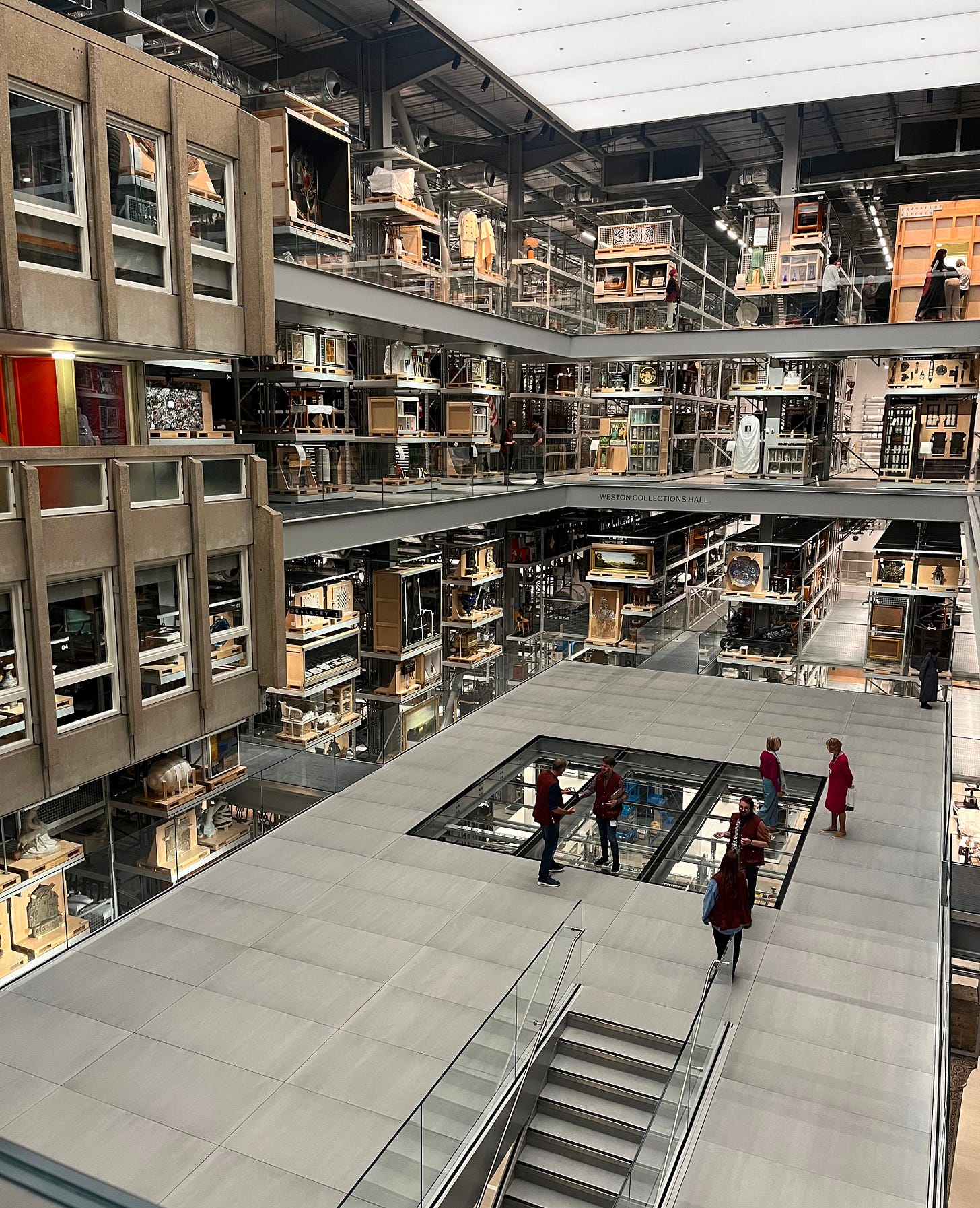The biggest news this week – and possibly in British museums more generally – is the opening of the V&A East Storehouse. The short version of this is GO NOW IT’S SO COOL.
What I’ve seen
The long version is the review that I wrote in The Times, which came out yesterday, and you can read it here, I think for free. But it is so amazing, such a good idea and so brilliantly executed – essentially a working museum store and conservation facility that you can visit with the most extensive access possible while still keeping the collection safe. With the Order an Object service you can do exactly that – go online, trawl the collection and pick up to five things, make an appointment, and then go and see them.
A member of the new access team will show them to you, and if it’s safe for the object you can handle them (with or without gloves, depending) and they’ll tell you a bit about them if you’re not an expert yourself.
And you really don’t have to be an expert. Though they ask you to tell them a bit about why you want to see it when you order it, that’s to make the experience as thorough and useful as possible – the reason can as easily be “because it’s cool, and I want to” as “because I’m a specialist in 20th century ceramic buttons”.
Regardless of whether you avail yourself of this service, as a visual experience Storehouse is absolutely awesome, spanning out from a vast central hall with a deliberately lo-fi aesthetic (despite the extremely high-tech working facilities) – and a proper jumble, affording unexpected connections and surprises. Items are organised according to where they fit (weight, dimensions, size etc is what matters, rather than period, style, theme or whatever) so you get a bicycle next to a dressmaker’s dummy, or a British road sign next to a cast iron Chinese figure.
And because of the scale of the place, it means that items like the stagecloths (vast theatre backdrops that don’t fit in any of the other V&A display spaces) or great chunks of significant architecture (a section of a marble colonnade from Shah Jahan’s bathhouse at Agra; a slice of the facade from the famous modernist Robin Hood Estate in Poplar) can be properly displayed, in many cases for the first time.
Keep reading with a 7-day free trial
Subscribe to The London Culture Edit to keep reading this post and get 7 days of free access to the full post archives.





